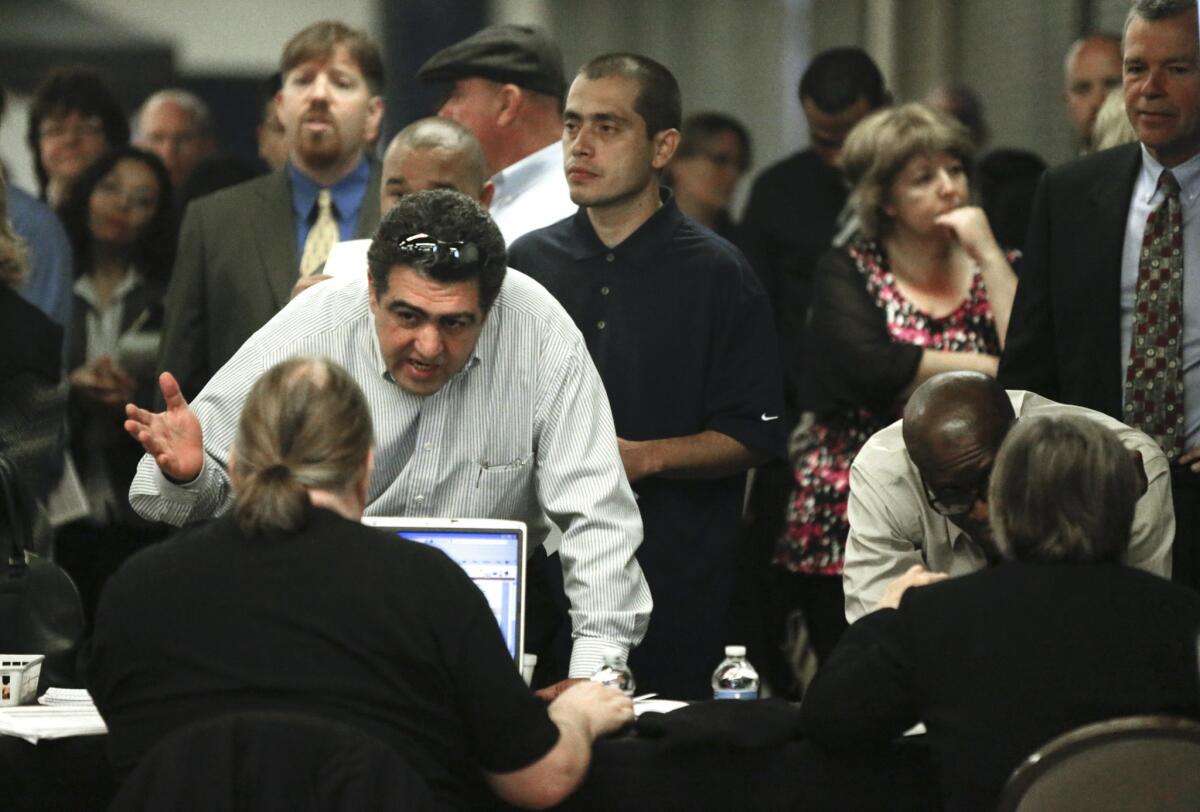FBI background checks flawed, hurt job prospects, report says

In fiscal year 2012, employers requested nearly 17 million FBI criminal background checks for prospective workers. But hundreds of thousands of records per year are inaccurate, according to a report released Tuesday.
The use of FBI records has increased six-fold since September 11, and the federal agency has acknowledged that thousands of records are incomplete.
The National Employment Law Project, an advocacy group for low-wage workers, said the faulty records threaten job prospects for about 1.8 million workers each year. About 600,000 of those workers’ records have positives case outcomes that are not reflected. Other records show an applicant was later convicted with a less serious offense.
Photos: Who works the longest hours? Jobs with the longest and shortest workdays
Employers and licensing boards have relied on these background checks to weed out applicants with criminal records.
“People cannot get jobs, or they’re losing their jobs, because of these defects in the FBI’s records,” said Madeline Neighly, a staff attorney with for the group and the report’s lead author.
“Employers assume FBI background checks are the gold standard, but the records are unreliable.”
According to the report, half of the FBI’s records show initial arrest records but do not have final outcomes. In some cases, charges are dropped but the records don’t reflect that. The report points to a 2006 Bureau of Justice Statistics study that found that one-third of felony arrests do not result in convictions.
An FBI spokesman did not immediately return a message seeking comment on the report.
In her report, Neighly said the incomplete records disproportionately affect Latino and black job applicants.
According to the report, African Americans are up to three as likely as whites to be arrested for minor offenses such as disorderly conduct, vagrancy and curfew violations.
Neighly recommends that states, who are responsible for reporting data to the FBI, do a better job of updating records. The report, however, says the FBI is ultimately responsible for ensuring its records are accurate.
ALSO:
Consumer confidence dropped in July, Conference Board says
JPMorgan settles energy market-rigging probe for $410 million
Home prices up sharply in U.S. cities in May, Case-Schiller index says







